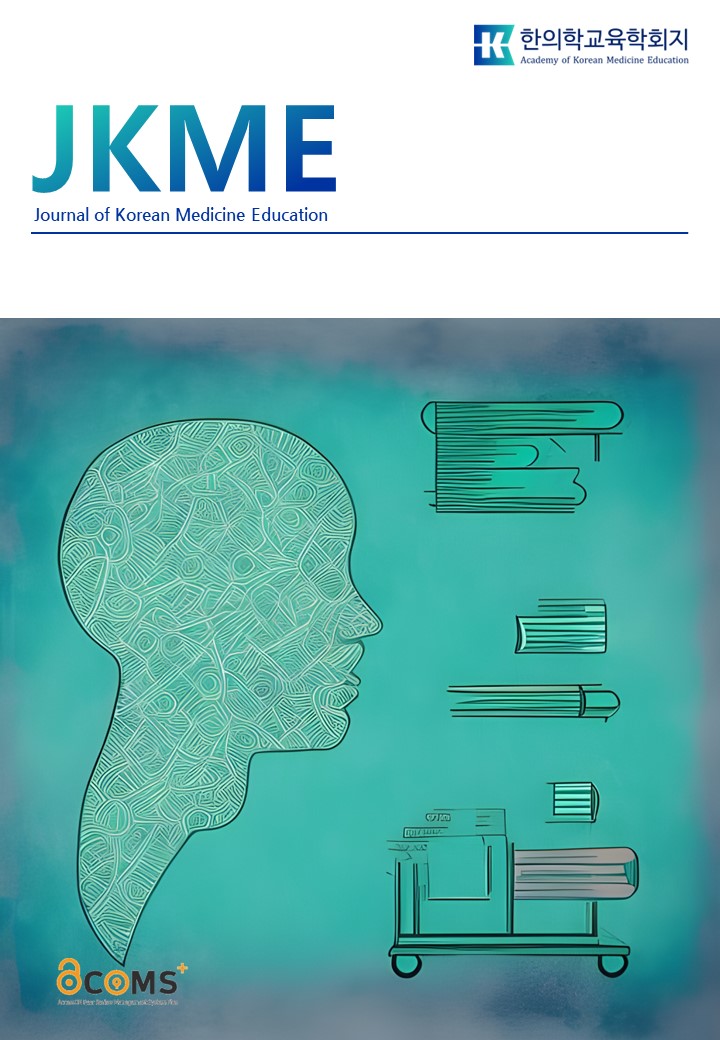- KOREAN
- E-ISSN2983-3973
 E-ISSN : 2983-3973
E-ISSN : 2983-3973
A qualitative study on the factors of satisfaction and dissatisfaction of Korean medical college students in classes of pre-Korean medicine

Min-Ryeong Park (Dong-Eui University College of Korean Medicine)

Ji-Won Lee (Dong-Eui University College of Korean Medicine)

Gyoo Yong Chi (Departments of Pathology, Dong-Eui University College of Korean Medicine)

Seon-Kyoung Kim (Departments of Medical Education, Dong-Eui University College of Korean Medicine)

Chan-Young Kwon (Departments of Oriental Neuropsychiatry, Dong-Eui University College of Korean Medicine)

Abstract
Background; Recently, Korean Medical Colleges are making efforts to improve the quality of Korean medicine (KM) education. KM, which freshmen encounter, is a potentially unfamiliar discipline to them, and it is important to investigate their perception of KM education. The purpose of this study was to investigate the factors of satisfaction and dissatisfaction of Korean Medical College students in the pre-KM curriculum. Methods; This qualitative study used focused group interview as the methodology. Six students recruited through purposeful sampling and snowball sampling participated in two rounds of semi-structured in-depth interviews. Each round lasted about 2 hours. The subjects' satisfaction and dissatisfaction factors with the pre-KM curriculum were categorized according to their characteristics. Results; Factors of satisfaction and dissatisfaction with the pre-KM curriculum were classified into academic, educational, and personal factors. The satisfaction factors included individualization-oriented characteristics of KM and friendly personal background to KM. As dissatisfaction factors, the unfamiliarity of knowledge related to KM and the conflict between knowledge systems were emphasized. In particular, the participants complained that the conflict between the education they had received through high school and that of KM was not well resolved. The reasons included unclear concepts and theories, the burden of failure, and the burden of memorization-oriented learning. Discussion and conclusions; The satisfaction factors and dissatisfaction factors investigated showed complex interactions with each other, and the definition and standardization of some ambiguous concepts, mitigation of the burden of failure, and understanding-oriented learning can be suggested as solutions to improve KM education. The results of this study will be used for the purpose of improving KM's curriculum in the future
- keywords
- Curriculum Satisfaction Survey, Focused Group Interview, Knowledge System Conflict, Korean Medical Education
- Submission Date
- 2023-08-16
- Revised Date
- 2023-12-31
- Accepted Date
- 2023-12-31
- Downloaded
- Viewed
- 0KCI Citations
- 0WOS Citations

